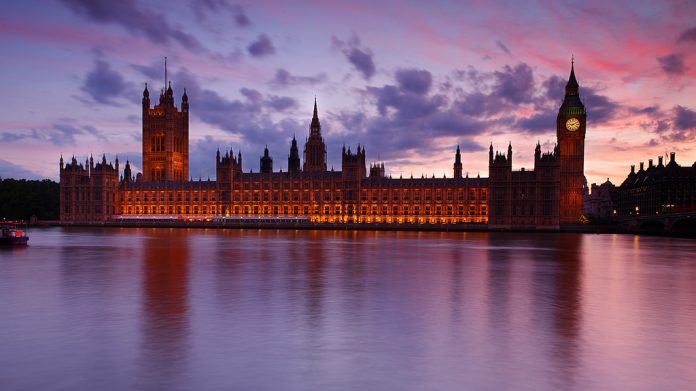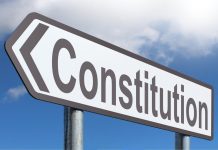This article has been written by Raslin Saluja, from KIIT School of Law, Bhubaneswar. This article extensively articulates the various roles and impacts the royal prerogative has in the British Constitution and its working.
Table of Contents
Introduction
The royal prerogative is also known as the crown prerogative, it empowers the monarch or the crown with certain rights, privileges, powers, and immunities exercisable on the advice of the ministers of the government. The cabinet stands for efficiency and the crown reflects dignity. The prerogative is based on the original powers of the monarch instead of relying on any statute or common law while forming a part of the constitutional system. The concept goes back to the days before parliamentary democracy and refers to the powers originally held by the British monarchy on an absolutist, arbitrary basis.
Among these powers are the right to declare war, making peace and presiding over treaties, having conferences with representatives of other monarchs, command armies and appoint generals. Monarchs were entrusted with full patronage powers for appointment and dismissal of ministers and judges, and to be able to gather taxes to pay for foreign wars and domestic projects. Various institutions of power like that of the armed forces, the church, and the landed elites, had to put in blind faith bound by the benefit of the community that will promote the acceptance of monarchy and provide support to its existence. The idea of being the monarch’s empowerment was advantageous for public security, national safety and the well-being of the people known as the monarch’s ‘subjects’.
Historical evolution
The scope and ambit of these powers and the identity of the Crown have changed with time as the United Kingdom’s legal landscape has transformed into a constitutional monarchy from an absolute monarchy. It has been extensively shaped by the English and British practice as the powers were being conferred on the executive and major constitutional reform agendas were being introduced to make UK’s institutions more accountable and less dependant on the crown. The origins fall back to the powers of the medieval monarchs as feudal lord and head of the Kingdom. Initially, the powers were applicable on matters such as landholding, imposing taxes, making laws, and its suspension without the consent of parliament alongside maintaining peace. However, as per custom, the monarch had to regularly consult with the council for exercising prerogative.
It is pertinent to note that there was always a struggle to manage a balance of royal prerogative between the Crown and the Parliament. In fact, the early seventeenth century even marks the beginning of such struggles. In Prohibitions del Roy of 1607 (England), it was Sir Edward Coke who declared that the king in his personal capacity cannot adjudge any case and that the Court of justice had the power to review the extent of the prerogative. Subsequently, it was again reiterated by Coke in the Case of Proclamations of 1611 (England), that it was the statutes and the laws which were supreme and the king’s prerogative was dependent on what has been allowed by the law of land. However, these decisions were overlooked by the King and by the future governmental practice that followed. Hence, the subject continued to be of concern with respect to extra-parliamentary taxation powers. Further, the King succeeded in establishing his absolute powers before the courts in a series of cases Bate’s Case (1606) (England), Five Knights Case (1627) (England)), and Ship Money (1637) (England) leading to more disputes with the Parliament.
Bill of Rights (1689)
This brought about the celebrated uprising along with the establishment of a constitutional monarchy. The absolute and undiminished powers of the Crown finally saw a conversion into a body of limited and finite powers. The Bill, under Article 1, declared the exercising of the Crown’s power for suspending the laws or their execution on account of being illegal. Similarly, under Article 4, it would be illegal for the Crown to levy money to be used by the Crown in the pretence of prerogative unless approved by parliament. It was also stated that no new powers may be established under the prerogative by the monarch. By the time it was the eighteenth century, a convention based on the Constitution had evolved directing the exercise of prerogative powers only through the advice of ministers of the Parliament. This successfully transformed the earlier conception of the royal prerogative into a device of responsible government in a Constitutional monarchy. Thereafter, a clear framework for sharing the competencies between monarch and government regarding the exercise of prerogative has been set, however, questions pertaining to the scope and the demarcation of power between the two, keep coming up.
Demarcation as of today
Though the modern evolved executive powers derive their authority from the statutes, still an immense role is played by the unwritten prerogative powers even today. The regal authority still persists in important subject matters like foreign affairs, diplomatic relations, the deployment of armed forces, and the making of international treaties. It still extends certain personal privileges and immunities along with political prerogatives.
Constitutional features
As in the United Kingdom, and the modern-day constitutional system most prerogative powers are vested in the government which has the responsibility to guide and advise the monarch who is essentially bound by the above-mentioned convention to follow such guidance. However, in certain specific matters, the monarch retains their discretion.
Scope and content
In absence of an authoritative list, the royal prerogative’s content can roughly be categorized under five headings. Though it has lost most of its significance in the present world, the first category comprises the immunities and privileges in the personal capacity of the Crown or the monarch. The Crown Proceedings Act of 1947 (UK) had already removed the Crown’s immunity from civil proceedings, however, left the sovereign’s personal immunity untouched. The Crown is only bound by the statutes when it expressly mentions or automatically implies the intention to do so. The Crown keeps the many powers pertaining to political agendas with regard to appointment powers, the granting of honours, and appointments, including those of ministers under the second category.
Even specific limited legislative powers are also granted under the third category in the likes of the civil service, and the territories overseas through orders in council like Bancoult (No 2) (2008) (UK) or letters patent Overseas Territories, Australia, France, Netherlands, New Zealand, United Kingdom, United States of America. Upon ministerial guidance, the Queen’s consent is also required for a debate on a bill that is likely to affect the royal prerogative. To that end, the monarch also retains the power to grant royal assent to bills. Finally, the prerogative entitles the monarch to summon and prorogue the parliament, though its dissolution has now been regulated by the statute of the Fixed Term Parliaments Act 2011 (UK). Under the fourth category is the judicial system wherein the Crown carries the pardon power in the form of mercy prerogative.
And finally, a set of traditional executive powers are covered under a fifth category. However, these have lost their importance as a lot of these powers have also been granted by the parliament to the executive. These are mostly exercisable in case of emergencies and grant powers during the war, which In the present time have managed to move under the statutory ambit. The parliament has conferred the executive with extensive emergency powers as granted in matters such as the International Terrorism (Emergency Powers) Act 1987 (NZ), and Section 19–22 of the Civil Contingencies Act 2004 (UK), and the conduct of foreign affairs. An example for power under foreign affairs would include preventing aliens from entering the territory of the United Kingdom, passport issues of citizens, diplomacy, the recognition of foreign states, and the “treaty” related power. Although a budding constitutional convention does require the government prior consultation, the prerogative has the powers related to the organizing, dispositioning, and, particularly in deploying of armed forces.
Prerogative and statute relations
The fact that the monarch under its prerogative does not have the power of modification of the common law or the statutory law was established early in the seventeenth century in the Case of Proclamations (1610) (Eng). Rather, those powers are to be exercised in a manner conforming with existing statute law, thereby, not frustrating the purpose and objective of a statute and the intention of the parliament.
This is well reflected in the case of R (Miller) (2017) (UK) that dealt with the issue that whether the power of initiating the withdrawal from the European Union (EU) according to Article 50 of the Treaty on the Functioning of the European Union (TFEU) would come under the powers of royal prerogative. It was held by the Supreme Court that triggering Article 50 TFEU would inevitably affect the current laws of the United Kingdom. Thus, though the Crown encompasses in it the power to suspend/unmake treaties, it cannot exercise it in regard to the Treaties of the EU, at least in the absence of a local regime inappropriate statutory form.
In another instance, the exercise of monarchical powers may not overshadow or violate individual rights anymore, denoting the statute law or to say the parliamentary sovereignty as supreme. Though, it has its own exemption, namely, when there is an inherent infringement of the said prerogative power. For example, the power of property destruction is included in emergency powers, accompanied with an obligation to compensate as shown in Burmah Oil (1965) (UK) or like the power to terminate contracts included in civil services decision making mentioned in GCHQ (1985) (UK).
Furthermore, it is to be understood that when a statute is placed at a predominant position it will automatically curtail the prerogative powers reflected in De Keyser’s (1920) (UK), and Fire Brigades (1995) (UK). It will solely be on the interpretation that whether a statute supplants prerogative powers in any specific case, without having a ‘universally applicable legal test’ at hand. According to the widely accepted view, prerogative powers are abrogated only when a clear intention has been expressed or implied by the respective statute. That intention would emerge from the fact that a statute can thoroughly regulate a subject matter. In the event a statute overrides a prerogative power that would have been applicable in a more traditional setting, the question would then arise whether the continuity of the respective prerogative power’s existence is affected and if yes then to what extent.
Judicial Review of the Prerogative
Upon tracing the history, we find that judicial review over the royal prerogative was restricted based on the maxim ‘rex non potest peccare’ meaning, the ‘King can do no wrong’.Though historically courts could rule on a matter of a disputed prerogative power, however, the actual exercise of the power could not be put into interrogation until the second half of the twentieth century by the judiciary as stated in Chandler (1964) (UK).
In the case of Laker Airways (1977) (UK), Lord Denning opined as to why exempt the executive powers from judicial review and treat the prerogative powers any differently from the other discretionary power that the executive exercises. The prospect of increased reviewability developed in the GCHQ case of 1985. Later, many such instances then followed among the likes of the House of Lords wherein it was held that courts have the authority to adjudicate on matters of trade union exclusions from the Government Communications Headquarters (GCHQ) by way of order in council. The reviewing of passport refusal issue line in R ex parte Everett (1989) (UK), the expulsion power, the prerogative of mercy, and certain other legislative powers for overseas to name a few. However, not all exercisable prerogative powers will be or are needed to be reviewed unless the matters really require such as that of the international plane, administrative decisions, individual rights, or legitimate expectations.
Reform efforts and debates
One of the issues that have always been spoken about is the absence and need of parliament to take control and the legitimate democracy in the exercise of prerogative powers. Parliament rather seems to have only an indirect authority over the regal powers if their exercise does not require prior consent or any ex post-approval. A 2004 report by the UK Public Administration Select Committee ‘Taming the Prerogative: Strengthening Ministerial Accountability to Parliament’ suggested that parliament should adopt appropriate legislation to systematically consider and identify areas that require statutory safeguards pertaining to prerogative power.
The Green Paper in 2007 (CM 7170 (UK) addressed similar suggestions and remarks.. However, none has been able to address actual solutions and effective measures in reformation as the governments continue to bring the focus on the requirement for flexibility, which is to be fulfilled through the monarch. A report was released in 2009 by the UK Ministry of Justice on ‘The Governance of Britain: Review of the Executive Royal Prerogative Powers’, which provided an “open-ended” list of all aspects where monarchical powers are currently given weightage. To that end, some steps have been taken in restricting the powers.
Section 20 of the Constitutional Reform and Governance Act of 2010 (UK) brought it the provision of the introduction of international treaties to the parliament prior to ratification, although veto power was sort of taken away from the parliament. Part 1 of the same Act gave statutory recognition to civil service, however, without displacing prerogative powers. Even for military activities and prior to deployment of armed forces, a budding constitutional convention arguably requires parliamentary approval by the government.
Conclusion
After a thorough analysis, it is safe to say that the royal prerogative still holds sufficient power however less as compared to the earlier days. To instil long-lasting impactful system reforms, immense efforts will have to be put in. To begin with, there have been small advances. There is a high chance that these minute changes here and there might even continue to shrink or at the very least further manage the ambit and the implementation of the monarch’s prerogative.
References
- https://oxcon.ouplaw.com/view/10.1093/law-mpeccol/law-mpeccol-e773
- https://www.lawteacher.net/free-law-essays/constitutional-law/the-royal-prerogative-in-the-uk.php
- https://www.tutor2u.net/politics/reference/sources-of-the-uk-constitution-royal-prerogative-powers
LawSikho has created a telegram group for exchanging legal knowledge, referrals, and various opportunities. You can click on this link and join:
 Serato DJ Crack 2025Serato DJ PRO Crack
Serato DJ Crack 2025Serato DJ PRO Crack











 Allow notifications
Allow notifications


